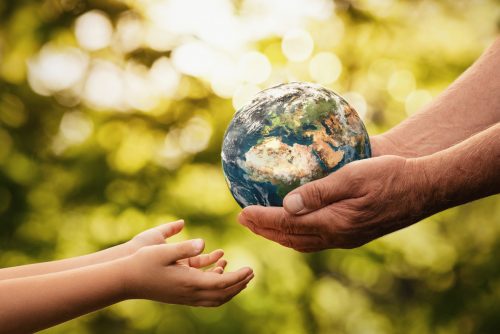 The theme of Earth Day 2021 is ‘Restore Our Earth’. Last year, despite significant slowdowns in global economic and social activity due to the pandemic, only a short, sharp reduction of -7.7% in carbon emissions was observed in Europe, compared to 2019. The impact of the coronavirus has captured much of our attention over the past year and in most parts of the world we are yet to restore day-to-day life. However, this has not diminished the threat that our planet faces from human activity, and the world must urgently focus its attention on the environmental challenges that remain to be solved. The rapidly accelerating loss of biodiversity across the globe and the impacts of climate change are becoming increasingly visible. In our cities, air pollution continues to threaten lives and demonstrates how closely the health of the environment is linked to human well-being.
The theme of Earth Day 2021 is ‘Restore Our Earth’. Last year, despite significant slowdowns in global economic and social activity due to the pandemic, only a short, sharp reduction of -7.7% in carbon emissions was observed in Europe, compared to 2019. The impact of the coronavirus has captured much of our attention over the past year and in most parts of the world we are yet to restore day-to-day life. However, this has not diminished the threat that our planet faces from human activity, and the world must urgently focus its attention on the environmental challenges that remain to be solved. The rapidly accelerating loss of biodiversity across the globe and the impacts of climate change are becoming increasingly visible. In our cities, air pollution continues to threaten lives and demonstrates how closely the health of the environment is linked to human well-being.
Thanks to state-of-the-art scientific knowledge and exceptional research efforts, the development of vaccines to counter COVID-19 happened far more rapidly than expected, illustrating what can be achieved through global scientific collaboration, collective focus, and investment in research. A path out of the pandemic is in sight and as we emerge, we have an opportunity to exploit this same drive across society to fight the threats that our Earth is facing.
On the heels of the extraordinary achievements of life sciences research in mobilising to fight the pandemic, it is crucial to recognise how the scientific community is also tackling environmental challenges – conducting fundamental research that will equip us with the tools to halt the damage to our planet and find solutions to restore it. Through advanced monitoring and analysis of the natural world, we are advancing our capabilities to protect the environment every day. From world-leading environmental science, geological research and Earth observation to the development of state-of-the-art materials and new, clean energy sources, the research and datasets produced by the EIROforum communities give us a foundation on which to build technologies that not only mitigate the impact of climate change, but also help us protect the Earth’s ecosystems, including human populations around the world vulnerable to a wide array of environmental threats.
The members of EIROforum also recognise that there is work to be done closer to home. All EIROforum organisations are developing ways to minimise the environmental impact of their scientific research and associated activities. Such considerations will be especially important as it becomes possible for the global scientific community to travel and access our facilities again, and also more broadly with regards scientific meetings and conferences. The potential to contribute to solutions that improve energy efficiency, reduce emissions, and eliminate reliance on non-renewable sources, thus helping mitigate climate change, are strong factors in decisions now being made across all of our organisations.
In the year that the long-awaited COP26 climate change conference will take place, we encourage scientists around the world to continue drawing attention to the importance of sustainable research and to get involved with the mission of Earth Day 2021.
The Directors General of CERN, EMBL, ESA, ESO, ESRF, EUROfusion, European XFEL, and ILL.
